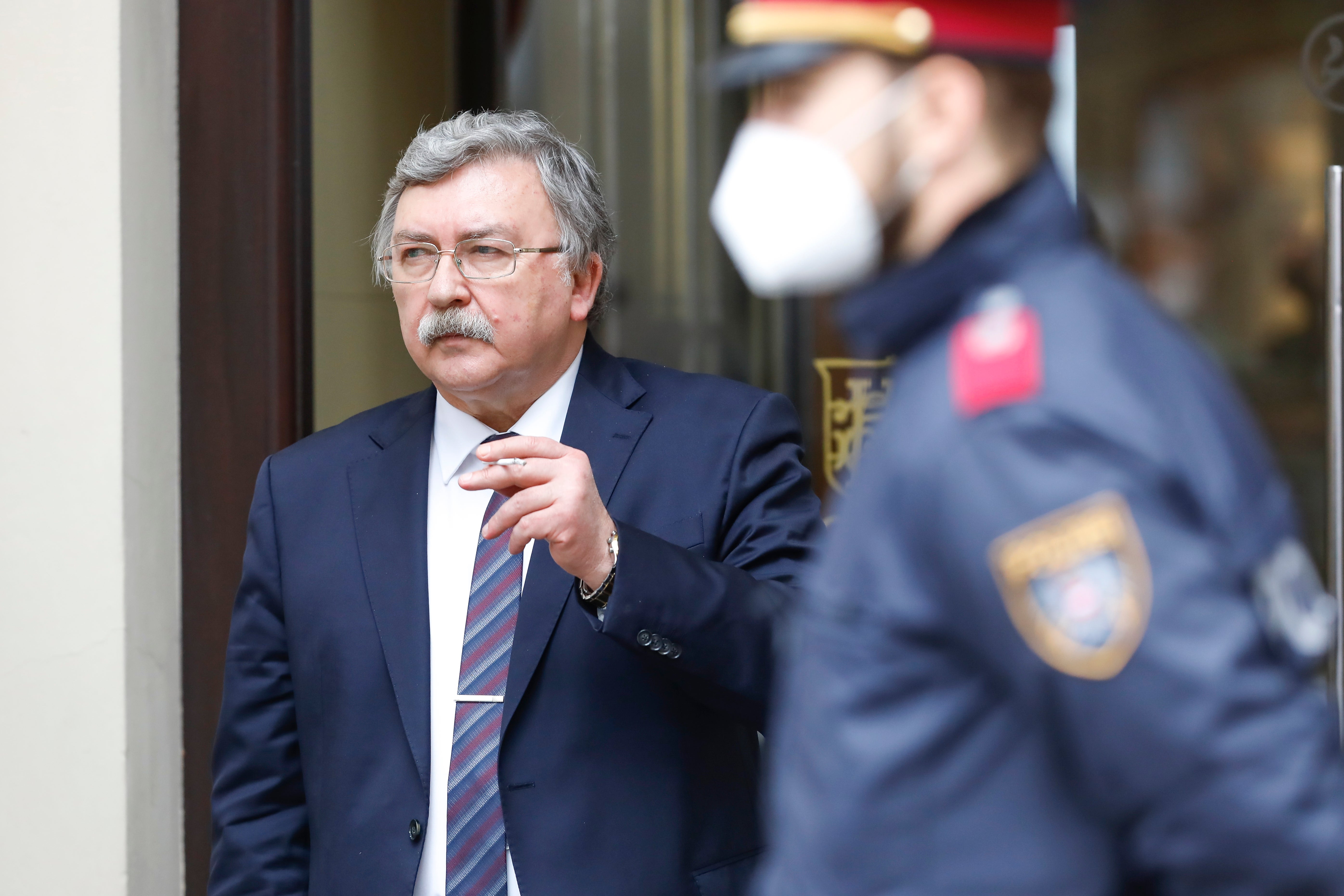Talks 'intensify' on bringing US back to Iran nuclear deal
World powers have held a fourth round of high-level talks aimed at bringing the United States back into a landmark nuclear deal with Iran

Your support helps us to tell the story
From reproductive rights to climate change to Big Tech, The Independent is on the ground when the story is developing. Whether it's investigating the financials of Elon Musk's pro-Trump PAC or producing our latest documentary, 'The A Word', which shines a light on the American women fighting for reproductive rights, we know how important it is to parse out the facts from the messaging.
At such a critical moment in US history, we need reporters on the ground. Your donation allows us to keep sending journalists to speak to both sides of the story.
The Independent is trusted by Americans across the entire political spectrum. And unlike many other quality news outlets, we choose not to lock Americans out of our reporting and analysis with paywalls. We believe quality journalism should be available to everyone, paid for by those who can afford it.
Your support makes all the difference.World powers held a fourth round of high-level talks Friday in Austria aimed at bringing the United States back into the nuclear deal with Iran with both sides signaling a willingness to work out the major stumbling blocks.
The talks began in early April and Russian delegate Mikhail Ulyanov tweeted following Friday's meeting that “the participants agreed on the need to intensify the process.”
“The delegations seem to be ready to stay in Vienna as long as necessary to achieve the goal,” he wrote.
The U.S. pulled out of the landmark 2015 deal in 2018 after then-President Donald Trump said the pact needed to be renegotiated. The deal had promised Iran economic incentives in exchange for curbs on its nuclear program, and the Trump administration reimposed heavy sanctions on the Islamic republic in an unsuccessful attempt to bring Tehran into new talks.
Iran reacted by steadily increasing its violations of the deal, which is intended to prevent the country from obtaining nuclear weapons. Iran began enriching uranium to a greater purity, stockpiling more than allowed and beginning to use more advanced centrifuges in an attempt to pressure the world powers remaining in the deal — Germany, France, Britain, Russia and China — for economic relief.
U.S. President Joe Biden says he wants to rejoin the deal, known as the Joint Comprehensive Plan of Action, or JCPOA, but that Iran needs to return to compliance.
Iran, which insists it does not want to produce a nuclear bomb, has said it is prepared to reverse all of its violations but that Washington must remove all sanctions imposed under Trump.
On the other side is the question of what Iran's return to compliance would look like. Delegates to the Vienna talks concede, for example, that Iranian nuclear scientists cannot unlearn the knowledge they acquired in the last three years, but it is not clear whether Iran's new centrifuges would need to be destroyed, mothballed and locked away, or simply taken offline.
Because the U.S. is currently out of the deal, there was no American representation at the talks. Diplomats involved are shuttling between the Iranian side and a delegation from Washington elsewhere in Vienna.
Between the high-level meetings, expert groups have been meeting to try and come up with solutions to the outstanding issues.
Ahead of the talks, a senior U.S. official, speaking on condition of anonymity to discuss the U.S. position, said Washington has laid out the concessions it’s prepared to make and that success or failure now depends on Iran making the political decision to accept those concessions and to return to compliance with the accord.
The official said it remains possible to reach an agreement before Iran’s June presidential election, which some believe are a complicating factor in the discussions.
Iran's delegate to the talks, Deputy Foreign Minister Abbas Araghchi, told his country's state-run IRNA news agency late Thursday that his team was trying to reach an agreement as soon as possible but would not act in haste and would act in Iran's national interests.
“We are on a specified path about which there are, fortunately, agreements, but there are serious obstacles in the way as well," Araghchi said.
Heading into the talks, Ulyanov tweeted that he saw positive signs from the Iranian minister's statements.
“The head of the Iranian delegation is cautious in his assessment of the current state of affairs at the Vienna talks (very similar to assessments of the US colleagues),” he tweeted. “But both #Iran and #US refrain from pessimistic conclusions. This seems to be not a bad sign.”
_____
Matthew Lee in Washington and Amir Vahdat in Tehran contributed to this story. Rising reported from Berlin.